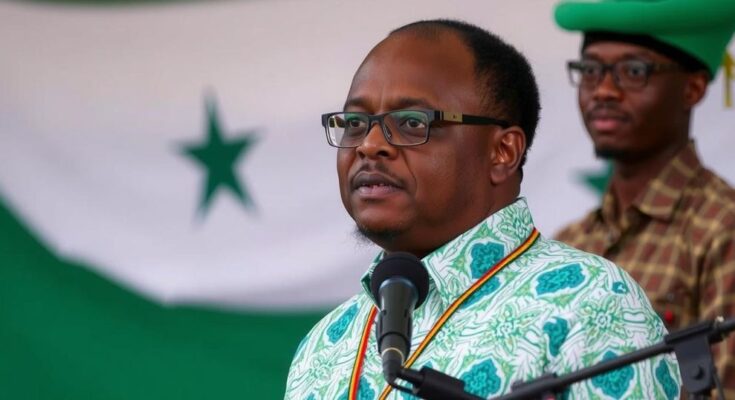Polling for presidential and legislative elections in Ghana commenced on Saturday, marred by a significant economic crisis that has stirred public dissatisfaction. Approximately 18.7 million citizens are registered to vote, yet most feel the country is heading in the wrong direction. Key candidates offer limited hope for recovery amid soaring inflation and job losses. The elections will also determine 276 parliamentary seats, with the two principal parties neck-and-neck.
The general election polls in Ghana opened on Saturday amid a severe economic crisis, representing a critical moment for the nation that has historically been a symbol of democratic resilience in West Africa. Approximately 18.7 million Ghanaians are eligible to vote, but public sentiment is largely pessimistic regarding the prospects for meaningful change, as evidenced by an Afrobarometer survey indicating that 82% of respondents believe the country is heading in the wrong direction.
Despite a field of 12 candidates, the presidential race has narrowed to a competition between Vice President Mahamudu Bawumia of the ruling New Patriotic Party (NPP) and former President John Dramani Mahama of the National Democratic Congress (NDC). Both candidates have struggled to differentiate their platforms significantly amid economic turmoil, which has heightened voter frustration over issues like rampant inflation, job scarcity, and rampant illegal gold mining.
In their final campaign appeals, Mr. Bawumia and Mr. Mahama sought to assure the electorate of their commitment to addressing Ghana’s economic challenges. Bawumia, an economist, pledged to continue stabilizing the economy under the current administration’s policies, while Mahama offered a vision to “reset” multiple sectors critical to national recovery.
The current economic conditions are stark; Ghana defaulted on most of its foreign debt last year, pushing essential costs such as food and fuel higher. Although inflation has started to decline from a 54% peak, many citizens still feel the financial sting at market stalls. Illegal gold mining, or galamsey, exacerbates environmental issues and has become central to voter concerns due to associated protests against the government’s ineffectiveness.
As voters cast their ballots, the air is charged with both optimism displayed in vibrant campaign materials and a pervasive anxiety regarding economic stability. The elections also involve the selection of 276 members of parliament, with the ruling NPP and opposition NDC each currently holding 137 seats.
Ultimately, this election is anticipated to be a pivotal gauge of democratic health in Ghana and an indicator of the direction the country’s leadership will take in navigating its most significant economic difficulties in decades.
The upcoming general elections in Ghana occur against a backdrop of one of the worst economic crises in the country’s recent history. Once considered a model of democracy within West Africa, Ghana has faced severe challenges in economic management, leading to widespread dissatisfaction among its populace. With major pockets of the economy currently in disarray, including rampant inflation, joblessness, and illegal activities within the mining sector, the political landscape has become increasingly contentious. This election is viewed not just as a political contest but as a critical examination of Ghana’s future governance and economic resilience.
In conclusion, the general election in Ghana is set against the grim reality of an economic crisis that has left many citizens disillusioned with the political process. With a significant number of candidates, the focus remains largely narrowed to two leading figures, each criticized for their previous tenure’s inability to revitalize the economy. As polls open, the implications will resonate far beyond the immediate outcomes, influencing the broader democratic landscape of West Africa.
Original Source: www.newsday.com




